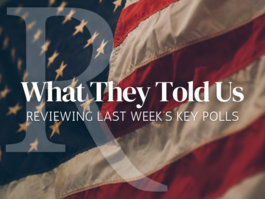62% Say Political Leaders Send U.S. Soldiers in Harm’s Way Too Often
As the United States involves itself more deeply in Syria, most voters continue to believe that American political leaders put U.S. troops in danger too much. Sixty-two percent (62%) of Likely U.S. Voters think our political leaders send U.S. soldiers into harm’s way too often, according to a new Rasmussen Reports national telephone survey. Just six percent (6%) say U.S. soldiers aren’t sent in to conflicts enough, while 24% say the balance is about right. (To see survey question wording, click here.)
Win an iPad: A new Rasmussen Challenge starts tomorrow!
The survey of 1,000 Likely Voters was conducted on June 18-19, 2013 by Rasmussen Reports. The margin of sampling error is +/- 3 percentage points with a 95% level of confidence. Field work for all Rasmussen Reports surveys is conducted by Pulse Opinion Research, LLC. See methodology.
















